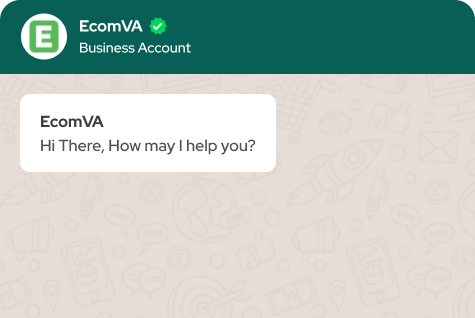How to do Keyword Optimization
Selecting the appropriate keywords for your content marketing strategy involves more than just including popular search terms in your article. It also involves learning how to employ keywords correctly and knowing which will bring the right kind of traffic to your website. Here’s where keyword optimization comes into play.
A step-by-step guide on how to do keyword optimization:
Step 1: Know your audience
Before diving headfirst into keywords, think about who you’re trying to reach. Identify your ideal customer – what are they searching for online? Here are some ways to get inside their heads:
- Brainstorming Bonanza: Grab a pen and paper (or your favourite note-taking app) and write down words and phrases related to your business. Consider the problems your business solves and the benefits it provides.
- Customer Empathy Challenge: Put yourself in the shoes of your ideal customer. What questions might they have? What problems are they trying to solve? What keywords would they use to search for solutions online?
- Competitor Spy Mission: Check out your competitor’s websites and see which keywords they are targeting. However, don’t just copy them – find your unique angle! Analyze their content and see what gaps you can fill by offering a fresh perspective or more in-depth information.
Step 2: Use keyword research tools
Now that you have a starting point, it’s time to use some handy tools to discover the hidden gems of the keyword world. Here are some popular options (most have free versions) to help you in keyword research and optimization:
- Google Keyword Planner: This free tool by Google helps you research keywords and see how many people search for them each month (search volume). It also provides insights into the competition level, giving you a sense of how difficult it might be to rank for those keywords.
- Answer the Public: This free tool suggests questions people are asking online related to your topic. It uses a cool visual format to present these questions, making it easy to brainstorm new content ideas and identify potential keywords with high search intent (meaning people are actively looking for information or solutions).
- Keyword Tool.io: This free keyword optimization tool offers additional keyword suggestions and related searches. It can help you expand your keyword list and discover long-tail keywords (more specific keyword phrases) that might be less competitive but still relevant to your target audience.
Step 3: Keyword filtering
Not all keywords are created equal. Here’s how to pick the best ones for your website:
- Search Volume: Look for keywords with a decent search volume, but not so high that competition is fierce. This is one of the best practices for keyword optimization. If a keyword has millions of searches per month, it’s probably super competitive and very difficult to rank for. Aim for keywords with a good balance between search volume and competition level.
- Relevance is King: Choose keywords that are relevant to your business and what you offer. Don’t try to rank for keywords that don’t make sense for your audience. For example, if you sell handmade pottery, targeting the keyword “cars” probably won’t attract the right kind of visitors.
- Specificity is Your Superpower: More specific keywords (like “running shoes for men with wide feet” instead of just “shoes”) can be more valuable, as they show higher purchase intent (meaning people are more likely to be ready to buy) and tend to be less competitive than broad keywords.
Step 4: Keyword integration
Once you have done keyword research and optimization, it’s time to strategically integrate them throughout your website, making it a keyword wonderland for search engines:
- Page Titles & Meta Descriptions: Make sure your target keywords are included in your page titles and meta descriptions (the short blurb that appears under your website in search results). This SEO keyword optimization tip helps search engines understand what your page is about and can make it more appealing to users. Think of your page title as a headline and your meta description as a captivating summary that entices users to click on your website.
- Headings & Content: Use your keywords naturally throughout your website content, including headings (like H1, H2, H3) and throughout the body text. Don’t overdo it though – keyword stuffing (using keywords unnaturally and excessively) can actually hurt your ranking. Search engines are smart and can detect attempts to manipulate the system. Focus on creating high-quality content that provides value to your readers, and weave your keywords in seamlessly.
- Image Alt Text: Don’t forget about images! Add alt-text descriptions to your images, including relevant keywords. This helps search engines understand the image and can improve your ranking in image searches. Alt text is also important for accessibility, as it provides a description of the image for users who are visually impaired or using screen readers.
Step 5: Keep your website content fresh
Search engines love fresh and valuable content. Regularly creating high-quality content that targets your keywords is crucial for long-term SEO success. This content should be informative and engaging and solve your target audience’s problems. Also, add relevant keywords in the content for on-page SEO keyword optimization.
Here are some content ideas to get you started:
- Blog Posts: Share your expertise and insights through blog posts that target your chosen keywords. Offer valuable advice, answer common questions, and showcase your knowledge in your industry.
- Product Descriptions: Write compelling and informative product descriptions that incorporate relevant keywords. Highlight the unique features and benefits of your products, and help potential customers understand why they need what you’re offering.
- Infographics: Visual content can be a powerful way to communicate information and engage your audience. Create infographics that explain complex topics in a clear and visually appealing way, using relevant keywords throughout the design.
- Videos: Videos are another great way to grab attention and boost engagement. Create informative or entertaining videos related to your niche, and optimize them with relevant keywords in the title, description, and tags.
Step 6: Track your progress
SEO is an ongoing process, and it takes time to see results. Use website analytics tools (like Google Analytics) to track your website traffic and see how your keyword optimization efforts are performing. Here are some key metrics to monitor:
- Organic Traffic: Track the amount of traffic coming to your website from search engines. This will help you see if your keyword optimization technique is leading to more visitors.
- Keyword Rankings: Use tools like Google Search Console to track your website’s ranking for specific keywords. This helps you see which keywords you’re ranking well for and which ones need improvement.
- Conversions: Ultimately, the goal of SEO is to attract visitors who convert into paying customers or leads. Track your conversion rate to see how effective your website is in achieving your business goals.
By analyzing your website analytics, you can identify what’s working and adjust your strategy accordingly. Maybe a particular keyword isn’t generating the traffic you expected, or a specific page on your website isn’t converting visitors as well as you’d like. Use this data to refine your keyword choices, optimize your content, and improve your overall SEO strategy.
Bonus Tip: Stay informed because SEO is always evolving
The world of SEO is constantly changing, with search engines regularly updating their algorithms. To stay ahead of the curve, here are some ways to keep yourself informed:
- Read SEO Blogs: Subscribe to blogs and websites written by SEO experts. These resources can provide valuable insights into the latest trends and best practices.
- Attend Webinars and Events: Many online marketing platforms and SEO companies offer free webinars and online events on various SEO topics. These events are a great way to learn from industry leaders and stay up-to-date on the latest developments.
- Take Online Courses: If you’re looking for a more comprehensive learning experience, consider taking an online SEO course. There are many free and paid options available, catering to different skill levels.
Keyword optimization might sound complex, but by following these simple steps, you can unlock its power and attract more visitors to your website. Remember, the key is to focus on your target audience, choose the right keywords, and weave them strategically throughout your website. With a little effort and an SEO-friendly keyword strategy, you’ll be well on your way to ranking higher in search results and achieving your online business goals!
Think Like a Human, Not Just a Search Engine
While keyword optimization is important, it’s crucial to remember that you’re writing for humans, not just search engines. Focus on creating high-quality content that is informative, engaging, and solves your target audience’s problems. When you create valuable content that people love to read, search engines will take notice too.
Virtual Assistant Service
Get in touch






